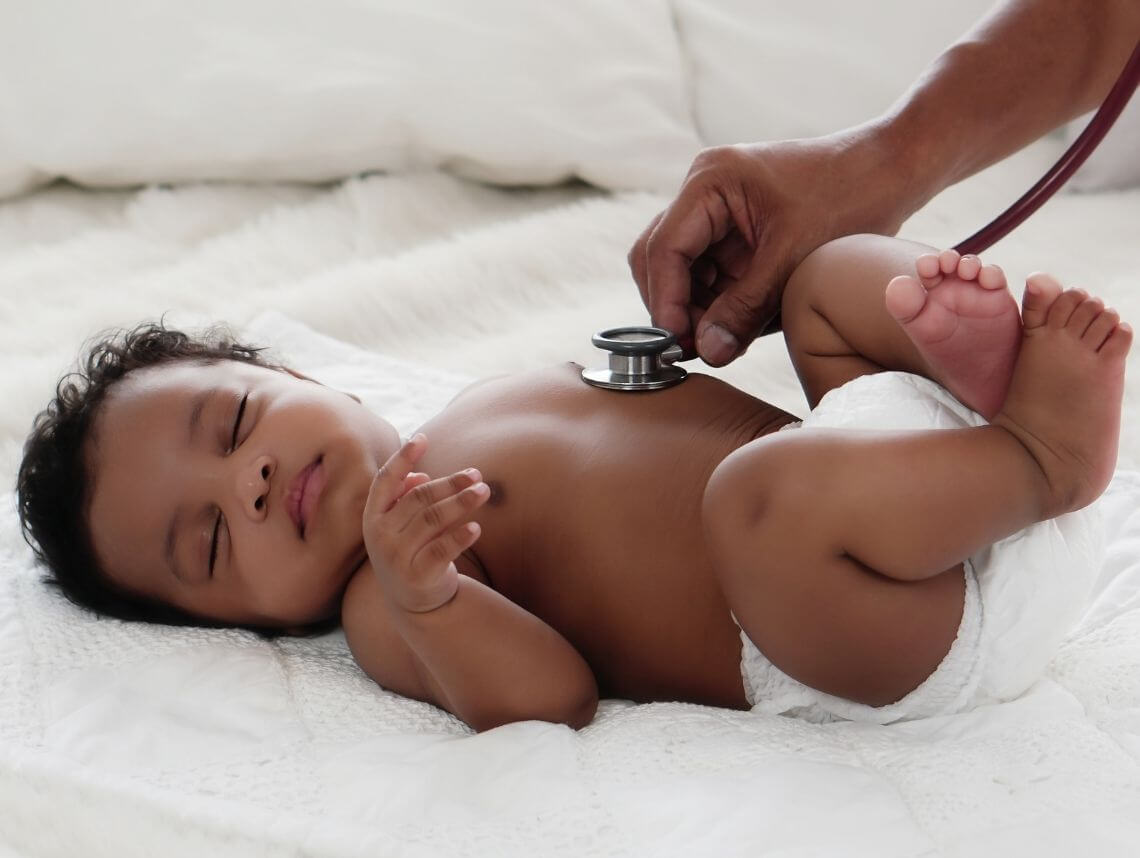
As a parent meeting their child for the first time, you suddenly feel like your whole world is the tiny infant in your arms. You want the best for them, and the thought of anything happening to them breaks your heart. That’s why it can be gut-wrenching to find out that your child has congenital heart disease. Why does this happen? And, how can you ensure that your child lives a normal life?
Causes of Congenital Heart Disease
Congenital heart disease is when structural heart problems, defects, or abnormalities are present since birth. While they can be present at birth, some defects aren’t identified until later in life. Some defects can be outgrown, while others require major surgery.
However, there is no known cause for congenital heart defects. Sometimes, they can be passed from a parent to a child, but they can also occur in the fetus of a woman who has an infection or who has been exposed to radiation and other toxic substances during pregnancy.
Risks of Congenital Heart Disease
In most cases, a child with congenital heart disease will have a perfectly normal and full life. But, their condition will need to be monitored as they grow up. That’s because having a congenital heart defect increases your risk for complications, including:
- Heart failure
- Endocarditis
- Atrial fibrillation
- Heart valve problems
How to Care for Your Child With Congenital Heart Disease
If your child has a congenital heart defect, then you’ll first need to identify the severity of their condition and determine if surgery is needed. If so, you’ll need to work with your child’s doctors to schedule surgery and follow their recovery plans for your child.
If their surgery takes place while they’re a baby, then you’ll want to make sure to provide them with adequate touch to promote bonding and assist your child’s care team when possible. However, if your child is a bit older, you may want to consider visiting often, framing photos of your family to keep them company, and bringing their favorite things from home — such as a toy or blanket.
How to Care for Your Child at Home
Once released from the hospital, you’ll need to monitor your child for signs of complications. In some cases, your child may need oxygen assistance. This will require knowing how to set up their oxygen to distribute the appropriate amount — this should be determined by their doctor.
Your child may also need medication to help them recover from surgery or to mitigate side effects from their condition. You’ll need to know how to administer their medication and abide by their schedule set by the physician. Your child will also need routine doctor appointments to monitor their status and identify complications before they occur. Keep a detailed list of appointments, medication details and instructions, and emergency contact information for convenience.
Feeding Your Child With Congenital Heart Disease
If your child is a baby, you may notice that they get tired more easily while eating — which can lead to challenging feeding sessions. If possible, breastfeed your child so that they receive the nutrients found in breastmilk. Since they tire easily, feeding may take longer than you initially expect. Be patient and allow your child to eat as slowly as they need. It can also help to be able to identify signs of hunger early and to provide smaller meals more often to help with digestion. If you’re bottle-feeding, make sure to use a soft nipple on the bottle and burp your baby often.
As your child grows up, you’ll want to make sure they have a well-rounded diet filled with leafy greens. You may want to continue feeding your child small meals but more often. This will help them gain weight since children with congenital heart disease have a tendency to burn calories faster.
Supporting Your Child With Congenital Heart Disease
Many children with congenital heart defects have scars from early surgeries or feel out of place from their peers. If they need oxygen therapy, spending the night with friends may be an impossible task that makes them feel isolated. You can support your child and help boost their self-esteem by having them do tasks that make them feel accomplished. You can also schedule daytime playdates so that they connect with other children their age. You can also work with other parents to teach them how to properly monitor your child so that they can participate in sleepovers without you worrying about their safety.
Caring for Your Child With a Support System
It’s important to understand that you don’t have to care for your child alone. You need time for yourself as much as you need to care for your child. That’s why it’s important that you find other people that you can trust to care for your child when you need to run errands, take care of your other children, or just need a little downtime from caregiving. Your support system may be family and friends, or it could be a professional pediatric home healthcare organization.
Contact Care Options for Kids for Home Health Care
It can be hard to balance your time between work, home, and caring for a child. That’s why our team of professionals at Care Options for Kids is here to help.
Our home health care services offer support in the comfort of your home. We refer loving and competent nurses to provide customized care for families — from a few hours a day to around-the-clock supervision. Contact us directly to speak with a home health care professional or request a free in-home assessment. Together we can determine the best plan of action to keep your loved ones happy and healthy.
If you or a loved one are considering pediatric home health care services, contact the caring staff at Care Options for Kids. Call today at (888) 592-5855.
